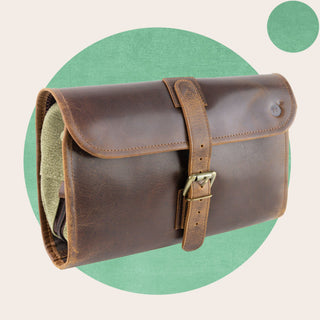What are all these cracks appearing all over my leather items? Why and when does real leather peel? What can you do to slow down the aging process?
All this and more today as we explore some of the reasons your leather might peel on you and what you can do to prevent it if indeed your leather is the real deal.
So, Does Real Leather Peel?
Technically it does not. Good quality leather should not peel, at least when it is correctly cared for. Leather can indeed last for a lifetime, aging with the user like a second piece of skin.
Genuine leather is even likely to last for decades upon decades, retaining its natural beauty while also garnering a new patina all its own, accruing age just as you might yourself.
This, though, is not always the case, for not all leathers were created equal. Statistically, how could they be, when each piece of leather is made from the hide of a cow, each one with its own unique characteristics and imperfections?
Being made from the hide of an animal, authentic leather naturally needs to be tended to and maintained, moisturizing it in much the same way a human would their own skin. Of course, you would not want to rush to your medicine cabinet and start lathering hand cream onto a leather item. Instead, you will need something a little more specialized.
Leather furniture is especially privy to the kind of cracking and peeling we have in our sights today. Often, this furniture is made from lesser-quality materials, like bonded leather or faux leather. No matter the actual leather content in these pieces of furniture, its eventual fate seems to be drying, cracking, and eventually peeling.
Bonded leather furniture is to be avoided if you can help it. A synthetic leather sofa made from bonded leather or another fake leather seems bound by fate to peel eventually. And, this is not just the preserve of furniture, for there are even leather shoes and many kinds of leather jacket and leather couch made to bear this affliction.
Peeling of this variety simply will not happen with grain leather, whether full-grain leather or not, certainly not in the same drastic way.

What Causes Leather to Peel?
There are a number of individual factors that might contribute to the peeling of your leather, even if it happens to be real leather of considerable quality.
Cleaning Products
Upon first sight of a crack on a leather item, it can be very easy to jump to conclusions and immediately assume that the leather is cracking. In these instances - and especially if the leather is of considerable quality - then the leather peeling might not be the leather itself, but rather the sealant on the leather surface.
It is very likely that the solvents being used to clean the leather are the cause. Perhaps they contain alcohol and other chemicals are activating one of the chemicals in the leather's sealant.
A common mistake with leather is to use rubbing alcohol to clean and sanitize it. While this might be a perfectly acceptable solution with human skin, there is something about this that does not compute with leather, despite how similar it is to skin in other ways.
Bondage
Of course, the leather in question could just as easily be bonded leather. To all intents and purposes, your leather item (whether it's a journal, a leather portfolio, or a messanger bag) might otherwise appear to be genuine leather. Beneath the surface, though, it could be bonded leather of lesser quality.
Bonded leather is especially prone to peeling, made up of a mixture of real and fake leather, so as to cut costs during the manufacturing process. Leftover scraps from real leather products are taken, then ground into a pulp before being stuck together, after which they are attached to a polyurethane coating.
For all its benefits, bonded leather does not share the elasticity of real leather. Real leather can be a lot like skin in the way it behaves, the way it reacts to outside stimuli, and the way it ages. Bonded leather does not share as many of these characteristics, hence why it is so often used as a cheaper alternative for upholstery and furniture.

Synthetic Leather
Another common choice for leather accessories is synthetic leather. Unlike bonded leather, synthetic leather has next to no leather in it but is rather composed entirely of synthetics like polyurethane or polyvinyl chloride. The material is embossed with a genuine leather print to give its appearance of genuine leather.
As aforementioned, leather of a considerable quality will not crack or peel, certainly not in the same way as bonded leather and synthetic leather. The latter two will look as though they are shedding their skin - which in fact they are - whereas the latter will only crack if shedding its sealant, often as a result of using alcohol to clean it.
How to Take Care of Leather
There are plenty of other avenues for leather care here on Moonster, though we will condense it down for you here in case you need it quickly.
Full-grain leather, as aforementioned, is made from the hide of an animal. Much like your own skin might, it needs to be regularly moisturized and maintained if you want to keep it supple while also lasting longer. This can also help for preventing the build-up of dirt on the material over time.
So, here are some tips:
- Clean with a microfiber towel or a soft brush.
- Air dry regularly after getting wet.
- Immediately pat dry leather after getting wet.
- Dry naturally, though - never artificially dry as this could permanently modify the shape.
- Avoid getting the leather wet as much as possible.
- Use a leather conditioner or a natural leather cream to moisturize the leather on as regular a basis as necessary.
- Never machine wash leather.
Last Word
So, there you have it! Hopefully, you are now feeling better equipped to deal with any cracking and peeling that has arisen in your own leather items. If this is a result of any shortcomings in the leather, then maybe it is time to upgrade to the genuine article!
FAQs Does Real Leather Peel?
How can you tell if it's real leather?
Real leather will tend to feel soft and flexible while also having a grainy feel to it. This is the grain that many leather enthusiasts will speak of. Any kind of artificial leather will not be able to stretch, certainly not as much as real leather. The latter also tends to feel warmer and bears a distinct oaky smell that the former simply does not.
Does real leather crack or peel?
In very rare cases, yes. This tends to happen if the leather is of poor quality to begin with. A leather of lesser quality will tend towards drying, cracking, and subsequently peeling. This drying and cracking are often exacerbated when you use the wrong kinds of cleaning products. As much as animal hide is akin to skin, there are certain things you might use on the latter - i.e. rubbing alcohol - that you should not use on the former. Instead, it is best to use a moisturizer of some kind, preferably one that is specially designed for leather products.
What causes real leather to peel?
Often, the main thing that causes leather to peel is its quality. A leather of lesser quality will inherently be more inclined towards drying out, cracking, and, ultimately, peeling. The higher the quality of leather, the less this will tend to happen. However, there are plenty of instances where leather of considerable quality can still peel. This often happens as a result of poor cleaning chemicals, using substances like rubbing alcohol in place of proper moisturizer and leather cream.



